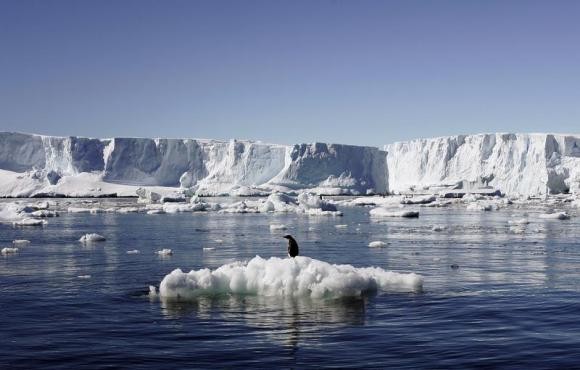New research study shows that global warming is affecting Antarctica much more than was expected in the past. Research findings lead scientists to believe that citizens, especially those near Antarctica should brace themselves for a rise in sea levels.
The Great Ice Sheet of West Antarctica was the first to experience the effects of global warming, but it appears that its counterpart, the Totten Glacier in East Antarctica is melting faster than anywhere else.
A team of scientists from the United States, France, Australia, and United Kingdom recently flew to and conducted a research on the world's largest ice sheet. What they found out was that Totten was melting faster than before because warm water was flowing underneath it.
Martin Siegert from the Grantham Institute at Imperial College London said that the events that took place in West Antarctica are similarly happening in East Antarctica.
The researchers have found that if the Totten Glacier continues to lose ice rapidly, it could cause sea levels to rise by about 25 percent or more in the United States.
Despite common notion that when ice on Antarctica melts, the water will be distributed evenly across the globe, Washington Post noted that the sea level will not rise evenly.
According to the outlet, the reason behind this phenomenon is the force of gravity. The melting of Antarctica will cause the gravitational pull to relax and water will head toward the Northern Hemisphere, including the U.S.
Climatologists previously believed that global warming may cause additional snowfall in the continent, but Peter Clark of Oregon State University told Tech Times that it will not likely happen, especially because they have not observed the phenomenon in the last 50 years.
While the study may not have been able to directly measure the temperature of the water affecting the glacier, researchers are hoping that their findings could help serve as a warning to people and increase awareness on the irreversible effects of global warming.



























